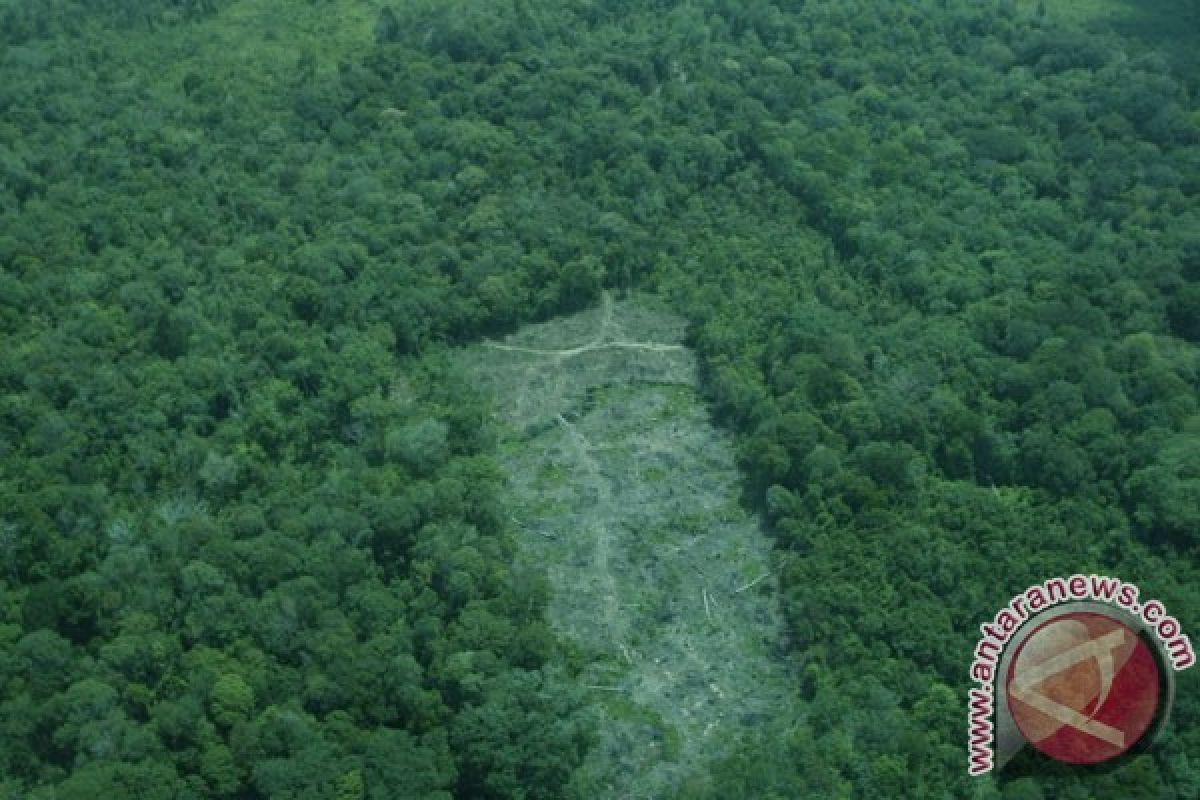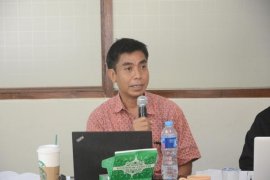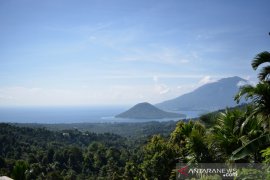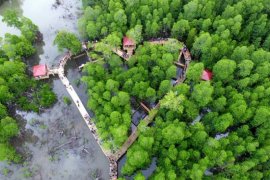"What is important to do now is restoring and safeguarding the forests, and that the forestry ministry will no longer issue a forest exploitation permit," Forestry Minister Zulkifli Hasan said.Jakarta (ANTARA News) - The forests in Indonesia have passed through a critical period when millions of hectares were destroyed per year in the past.
But now the critical period has been overcome and a total of 64 million hectares of primary forest in the country are in good condition as a result of effective forest management.
Effective forest management, according to Coordinating Minister for Economy Hatta Rajasa, is of great importance in Indonesia because the forests become the focus of world`s attention.
"It is all the more important as the international community regards the forests in Kalimantan as the lungs of the world," the minister said on Friday in Bojonegoro, East Java.
He opined that the forest management in Indonesia could run well if forest damage and illegal logging activities were reduced significantly.
"Regular people should also be involved in forest management so that they can gain from the economic aspects of forests," Rajasa said.
According to Forestry Minister Zulkifli Hasan, deforestation in Indonesia has dropped from 3.5 million hectares a year at the early reform period to 300,000 hectares a year now.
The forestry minister noted that his office would provide
Rp2.5 trillion for the development of green areas by people who could borrow from the funds to buy various kinds of trees and saplings for planting.
Zulkifli explained that a person with 1 hectare of land could borrow Rp1 million to buy 20,000 trees for planting.
"The funds are allocated for development of green areas by people to reduce deforestation," he noted.
Further, he pointed out that deforestation has also been reduced through replanting program, counseling and empowerment program to make the community keep safeguarding and preserving the forests.
He said the biggest forest destruction was caused by industrial activities especially by wood industries that have misused their concession rights leading to illegal logging.
Another factor contributing to deforestation is conversion of forests into plantations, he added.
The minister said his office has no longer issued a new concession right adding the existing rights are old ones.
"What is important to do now is restoring and safeguarding the forests, and that the forestry ministry will no longer issue a forest exploitation permit," Zulkifli said in Padang, West Sumatra, on Thursday.
He noted that the forests should be preserved to safeguard fauna and flora in Indonesia.
The minister said the government has taken continued efforts to reduce the rate of deforestation among others through researches involving experts at preserving the environment.
Meanwhile, the Ministry of Environment through people empowerment programmes, is encouraging the public to play a greater role in preservation of the environment.
"With regard to climate change, the government has developed a National Action Plan and is committed to reducing Indonesia`s greenhouse gas emissions by 26 percent by 2020," Environment Minister Balthasar Kambuaya said in Makassar, South Sulawesi, recently.
He expressed hope that Indonesian people would cooperate with the government by planting more trees, saving energy and water, reducing their use of cars, and ensuring that their vehicles comply with the nation`s emission norms.
Balthasar said the government was raising awareness about the environment among all communities, including students fore reforestation efforts.
He pointed out that reforestation measures have been implemented in approximately 60 percent of the country`s total land area.
"We have covered more than 60 percent of Indonesia over the past three years after beginning our reforestation programme," he said after planting some seedlings in Maros district, South Sulawesi province.
Balthasar said his office continued to make efforts to preserve and improve the environment by, among other things, planting trees.
"We plant an increasing number of trees across the country every year in our effort to preserve the forests and improve the environment," he added.
During his speech in June 2012 at the Center for International Forestry Research (CIFOR) in Bogor, West Java, President Susilo Bambang Yudhoyono admitted that Indonesia used to experience very serious deforestation.
At the time the president pointed out that the serious deforestation was the result of forestry policy in 1970s and 1980s that allowed anyone to cut the forests so long as it gave benefits to development.
But then the president noted that such a policy is no longer tenable today because losing the tropical rain forests would constitute the ultimate national, global and planetary disaster.
"That`s why Indonesia has reversed course by committing to sustainable forestry," he said.
Then, during his working visit to New York late in September this year President Yudhoyono said Indonesia had succeeded in reducing deforestation through its reforestation efforts by implementing a number of programs involving the local community.
"The most depressing event relating to deforestation in our country is when we lost 3.5 million hectares of rainforests during the transition-to-democracy period in 2000," he said.
From that point on, he said Indonesia has launched a number of policies which required cooperation of the local community as well as the international community to regain its forest cover, although it was not easy to implement such policies.
He explained that one of the positive outcomes of the policies was that 35 percent of Indonesia`s tropical rainforests are currently protected by the government. (*)
Reporter: Ootniel tamindael
Editor: Heru Purwanto
Copyright © ANTARA 2012












